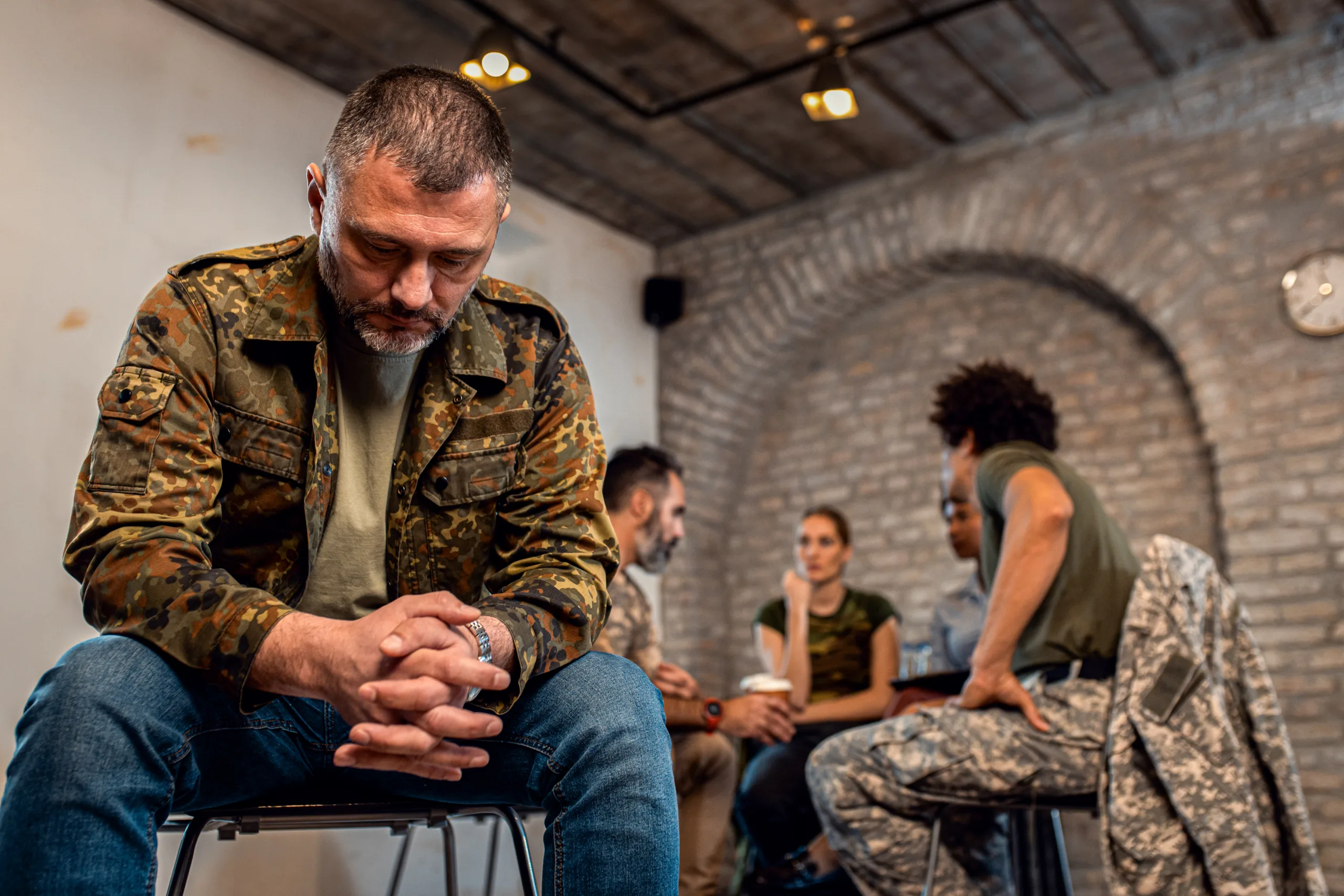Beneath the surface of veterans’ courage and sacrifice lies a silent struggle that many face: addiction. While substance abuse can affect anyone, veterans are particularly vulnerable due to the unique challenges they encounter during and after military service. In this blog, we delve into the complexities of veteran addiction, exploring the daunting journey of withdrawal from drugs and alcohol that many veterans face upon returning to civilian life.
Understanding veteran addiction
The transition from military to civilian life can be overwhelming for many veterans. Combat, trauma, physical injuries and the loss of comrades can leave lasting scars, both visible and invisible. To try and cope with these experiences, some veterans turn to substances like drugs and alcohol as a means of self-medication. What starts as a coping mechanism can quickly spiral into addiction, leading to devastating consequences for the individual and their loved ones.
Veterans and Substance Use: The Harsh Reality
Statistics paint a grim picture of veteran addiction. Studies have shown that veterans are more likely to struggle with substance use disorders compared to civilians. Regardless of whether they’re using alcohol, prescription drugs or illicit substances, many veterans find themselves trapped in a cycle of addiction that seems impossible to break.
The road to recovery: drug addiction withdrawal
While help is available for veterans who decide to confront addiction and seek help, the journey to recovery is challenging. One of the first hurdles to overcome is withdrawal from drugs. Depending on the substance and the severity of the addiction, withdrawal symptoms can range from mild discomfort to life-threatening medical complications. From intense cravings and insomnia to nausea and seizures, the physical and psychological toll of drug withdrawal can be agonizing.
Confronting demons: alcohol addiction withdrawal
Similarly, veterans struggling with alcohol addiction face a grueling battle during withdrawal. Alcohol withdrawal syndrome can manifest in symptoms such as tremors, nausea, hallucinations, anxiety and even psychosis. In addition, alcohol withdrawal can be dangerous to attempt on one’s own and should always occur under medical supervision, so a strong support system and access to proper medical care are extremely important.
The importance of support
Veterans navigating the path to recovery need a strong support network. This may include counseling, peer support groups or specialized treatment programs. Organizations like the U.S. Department of Veterans Affairs (VA) offer resources and services specifically tailored to address the unique needs of veterans struggling with substance use disorders.
Breaking the stigma
For veterans, stigma around mental health and substance use disorders is a major barrier to seeking help for addiction. Veterans may fear being perceived as weak or incompetent if they admit to having a problem. Creating a culture of acceptance and support within both the military and civilian communities can help. By destigmatizing addiction and encouraging open dialogue, we can empower veterans to seek the help they need without fear of judgment or discrimination.
A call to action
By offering help to those who need it most, we can honor the sacrifice of those who have served our country and ensure that no veteran has to fight their battles alone.
Facing the prospect of withdrawal from substance use addiction, and the associated physical and psychological challenges, can be daunting. However, with the right support and resources, veterans can overcome these obstacles and reclaim their lives. By raising awareness, breaking down barriers and offering a helping hand, we can ensure that every veteran receives the care and support they deserve on their journey to recovery.



